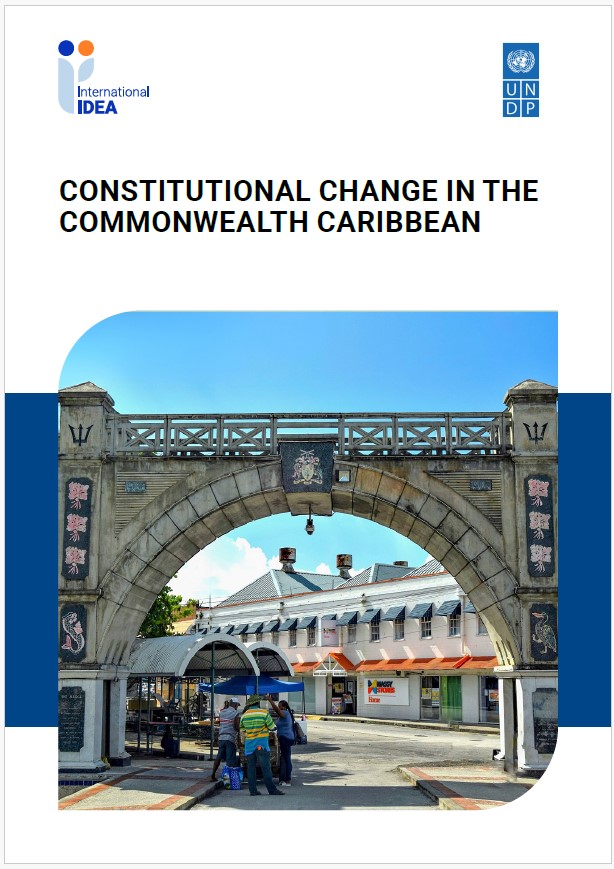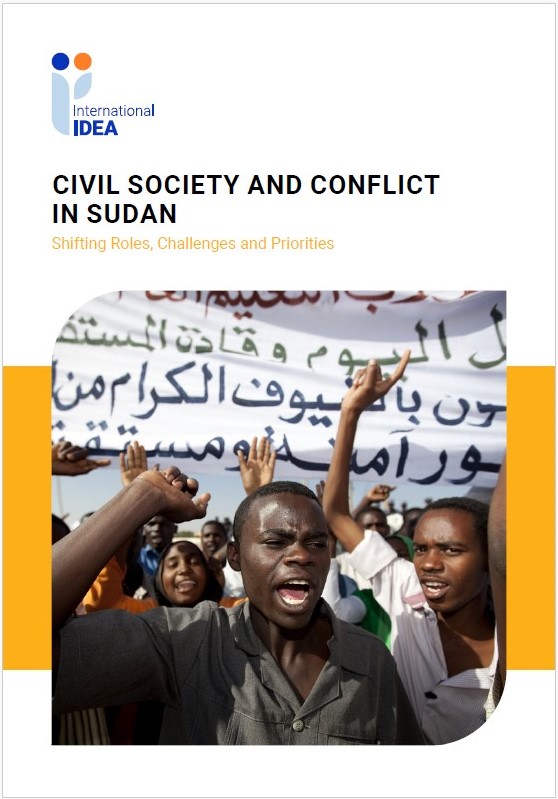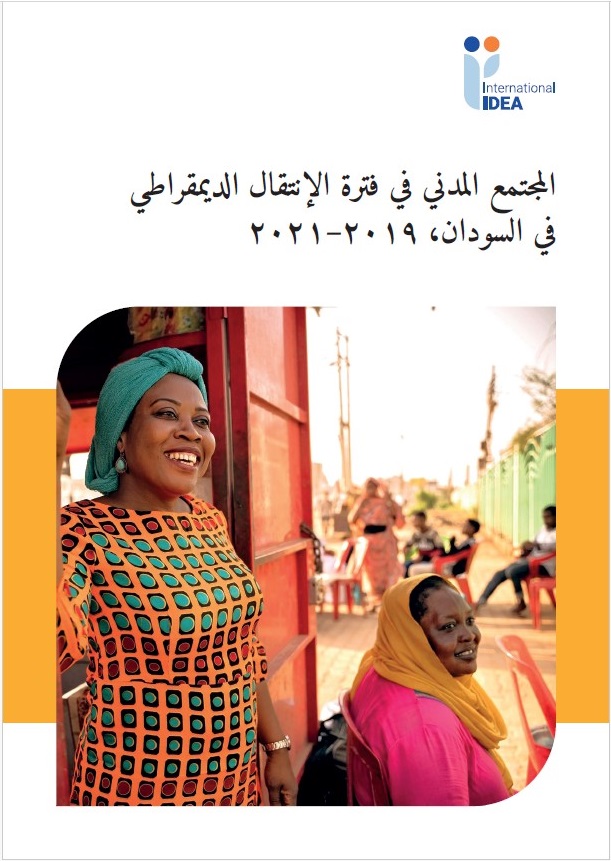“No citizens, no true democracy” is a widely held perception in academic research and among democracy building practitioners. Previous research from advanced democracies has shown that democratic citizenship and political engagement develop early in life and thereafter stay relatively unchanged. So, how do we build democratic citizenship in transitioning countries, how do citizens learn to be democratic and what role do young people have?
Search
Region
Country
Type
The Union Election Commission of Myanmar held a Post-Election Review Conference in Yangon, Myanmar, on 22-23 June 2017. The conference brought together a wide array of stakeholders to discuss some of the key lessons learned during the 2017 by-elections, and to build on those achievements for the preparation of the 2020 general elections.
في خضم الأحداث التي مرت بها المنطقة العربية منذ عام ٢٠١٠، ظهرت حاجة ملحة لتأسيس بيت خبرة عربي يُعنى ببناء وإصلاح الدساتير العربية. واستجابة لتلك الحاجة، تلاقت مجموعة من مختلف الدول العربية، من المهتمين بالإصلاح الدستوري والملتزمين بالتحول الديمقراطي في الدول العربية، بهدف تأسيس منبر عربي للقانون الدستوري.
Today, nearly two-thirds of the world’s countries provide political parties and/or candidates with public funding, through either monetary or indirect financial support such as subsidised access to media.
International IDEA’s newly released film LGBTI Political Inclusion Journeys follows the trajectories of Lesbian, Gay, Bisexual, Transgender and Intersex (LGBTI) groups in Malawi and Nepal, aiming to showcase strategies for political inclusion of LGBTI people as a principle of democratic participation in public life.
No voice should be left unheard. No one should be left behind. No one should be subject to any form of exclusionary rhetoric. For democracy to be sustainable, International IDEA believes that democracy should allow each and every citizen to participate in political processes and represent their interests and concerns.
International IDEA's Latin America and Caribbean programme responds to requests from actors in Paraguay to build capacity through technical assistance, comparative applied knowledge resources and by providing a space for dialogue.
As in most African countries, gender inequalities remain a major challenge to human development in Côte d’Ivoire . Though women’s and girls’ condition significantly improved since Côte d’Ivoire’s independence, they still face challenges, especially in health, education, labour, access to home ownership and justice, entrepreneurship, political representation and inclusiveness, that negatively impact women’s empowerment.
The historic practice of exclusionary politics in Nepal gave birth to a strong demand for a new constitution to embrace inclusive politics. The recent political transition from a unitary centralized governing system, to a federal democratic republican system of governance, is a major paradigm shift that comes with enhanced hopes for equal opportunities in state institutions and the democratic process.
Many Eastern European countries have a bad reputation when it comes to corruption and to political corruption in particular. The widespread public mistrust of political parties and politicians in the region is fuelled by the obscure origins and amounts of money that parties and candidates receive and spend. Although the laws and regulations governing such political finance have been much improved and sharpened in recent years, there are still huge challenges in terms of implementation.
"I am grateful for the honor of receiving this award that bears the illustrious name of Guillermo O' Donnell. My words of gratitude for all those who decided to bestow this award on me; I note in particular Gabriela Ippolito, who has displayed the persistence and commitment to continue and to disseminate Guillermo’s foundational work. I take it as recognition of so many thousands of Latin Americans who have struggled in times of dictatorship and are devoted now to improving and consolidating democracy"
The Office of International IDEA to the EU (EUO), with the support of the Tunis office, hosted a stand at the annual European Development Days (EDD), held in Brussels during 7-8 June 2017. The annual EDD event is organized by the European Commission to gather the global development community to share ideas and experiences, and inspire future action and partnerships.
A credible voter register gives legitimacy to the electoral process and helps prevent electoral fraud.
However, voter registration remains a complex and contested task. It is one of the most important activities that an electoral management body needs to conduct, but it is also one of the most costly in terms of both time and resources.
On 12-15th June 2017, International IDEA´s Secretary-General Yves Leterme took part in the 23rd Conference of Montréal: “A New World: Managing Change”, organized by the International Economic Forum of the Americas in collaboration with International IDEA.
"Agradezco el honor que me confieren al otorgarme este premio que lleva el nombre ilustre de Guillermo O' Donnell. Mis agradecimientos son muy sentidos a todos quienes decidieron otorgármelo, destacando entre ellos a Gabriela Ippolito quien ha mostrado la persistencia y el compromiso de continuar y proyectar la obra fundacional de Guillermo.
“We loved this way of training people! It is very different from what we are used to, very deep and useful”. This is what a participant expressed about the three oratory training sessions organized by International IDEA from 23 to 30 May 2017 at Côte des Arcadins in Haiti. In total, 27 Haitian female leaders, mostly mayors and parliamentarians benefited from this important seminar.
Del 23 al 30 de Mayo 2017, IDEA Internacional organizó tres sesiones de capacitación en oratoria para alcaldesas y parlamentarias mujeres en Haití.
Continuing International IDEA’s Electoral Risk Management (ERM) Tour of Asia, we visited the Commission on Elections (Comelec) of the Philippines in Manila for the fifth one-day workshop on 24 May 2017. As with the previous stops of the Tour, we did not know what to expect other than the usual liveliness of the Philippine atmosphere. We felt very much welcomed at Comelec and the active participation of the attendees was rewarding indeed.
On 30-31 May 2017, International IDEA’s Constitution-Building Programme hosted a workshop on “Constitutional Responses to the Crisis of Representation and Oligarchic Democracy” (CR2OD), held at The Hague Institute for Global Justice.
The overarching objective of this workshop was to assess the causes and patterns of money influencing elections in Southern Africa and the impact on the quality of democracy in the region.
It sought to help identify the key electoral finance reform interventions that will require the attention of political leaders, EMBs, civil society and regional organizations such as the Southern African Development Community (SADC).


